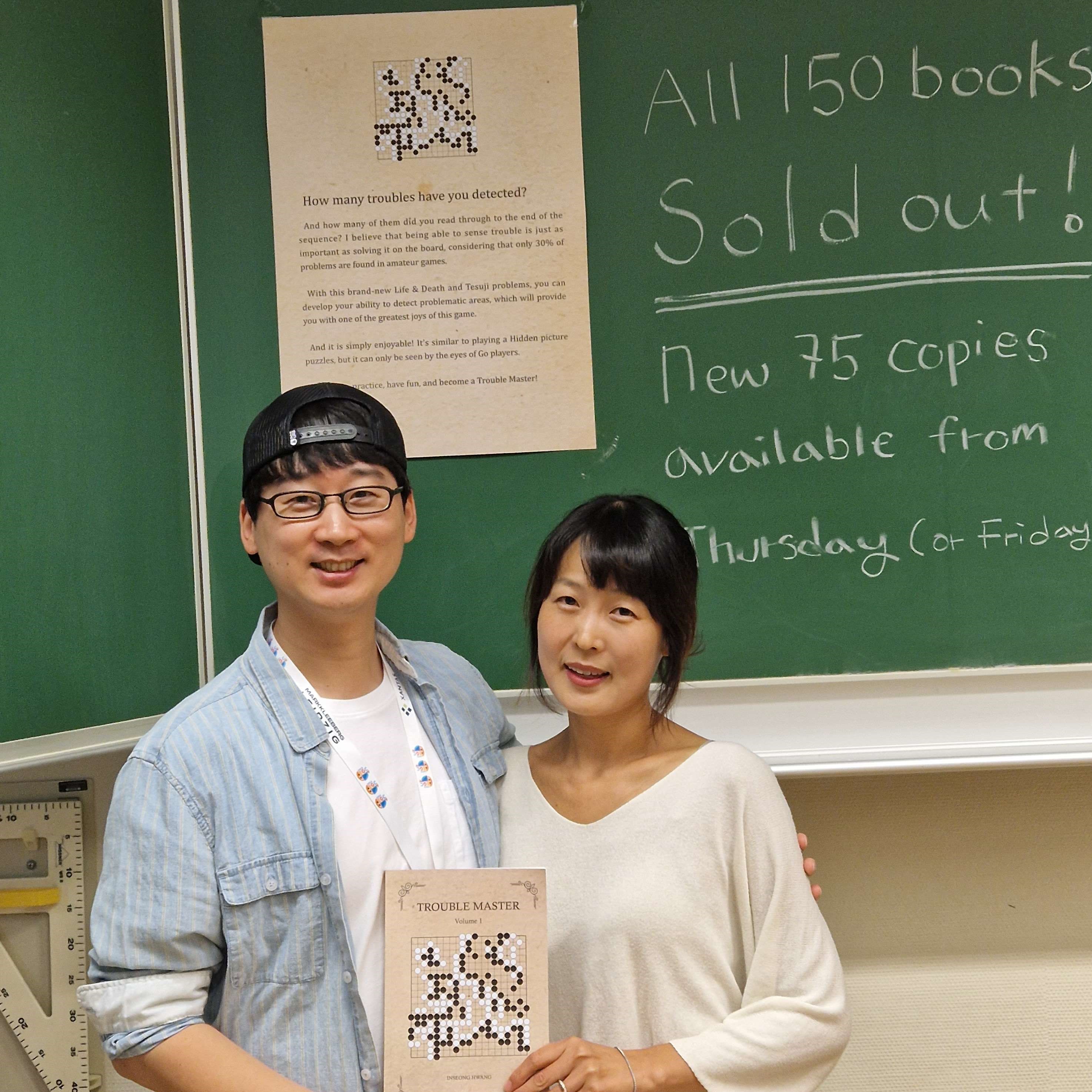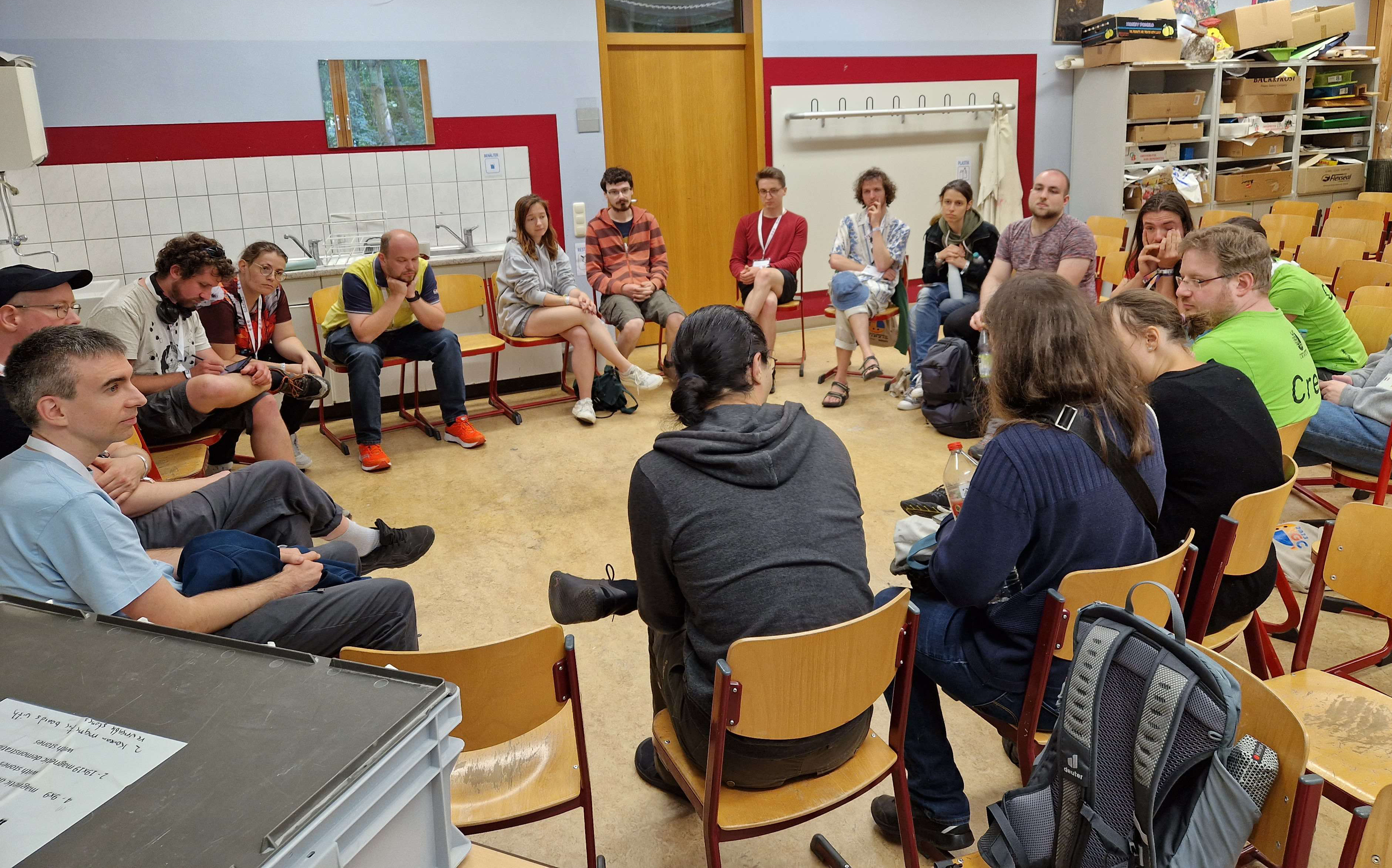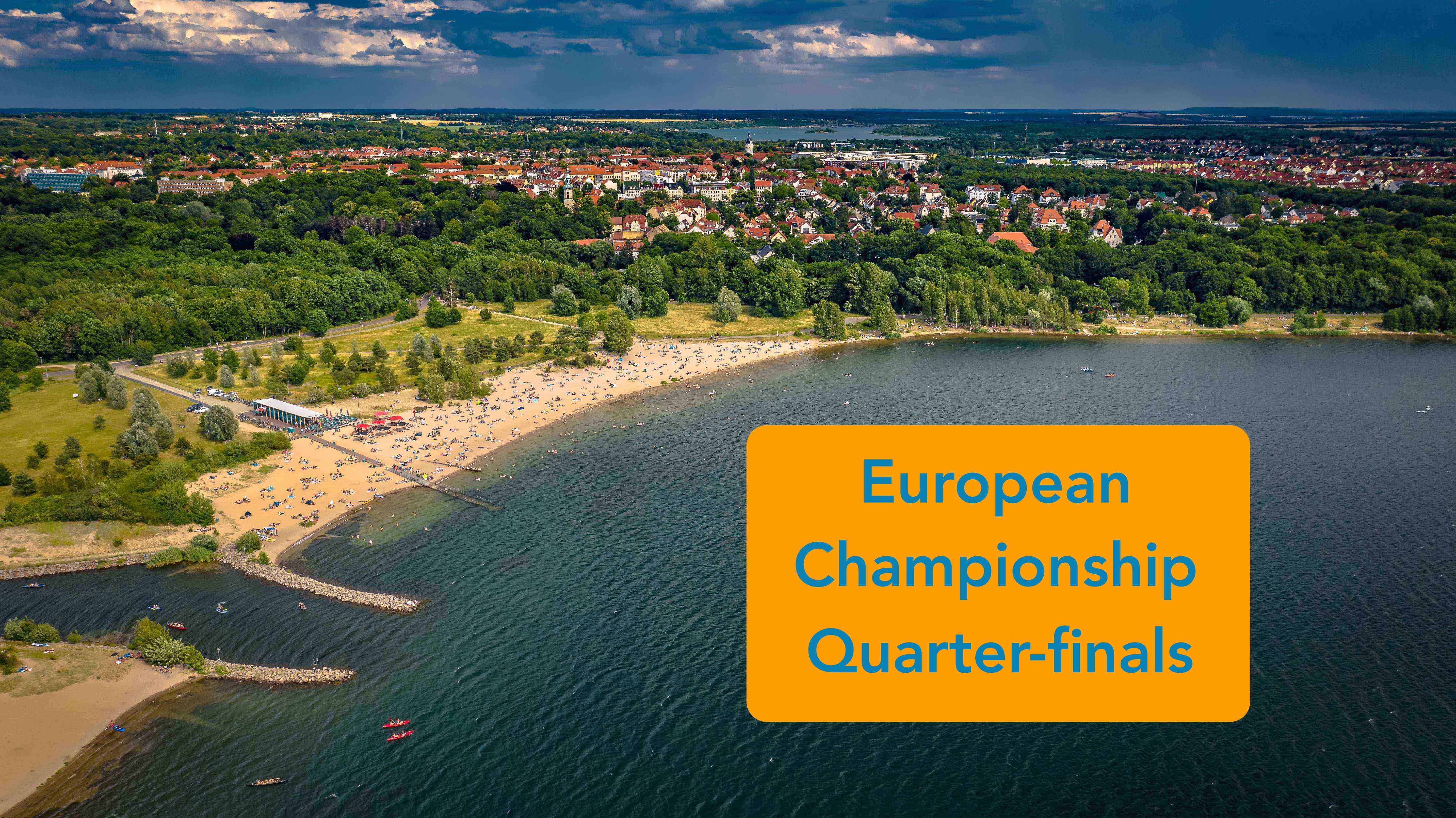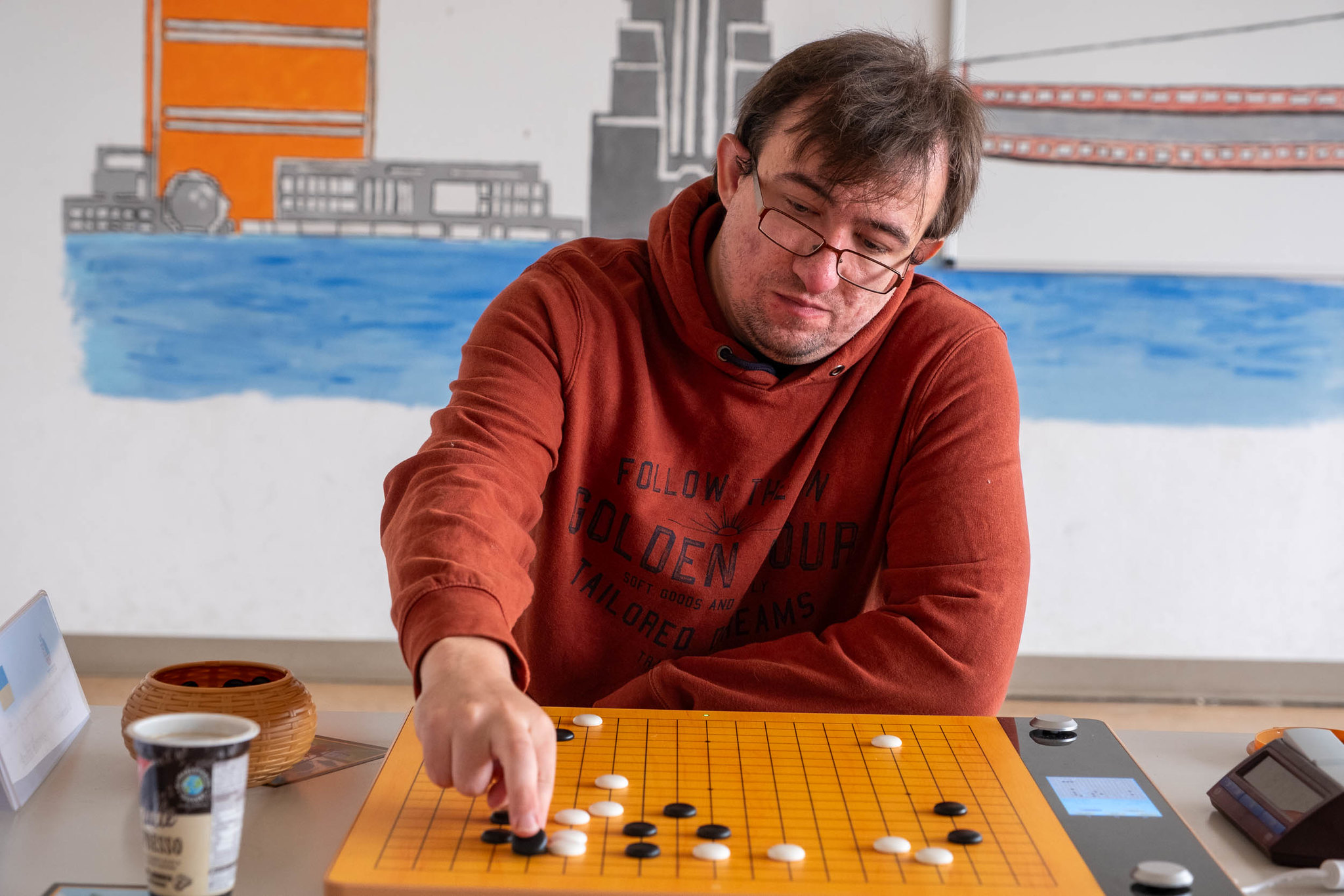
Photos by Harry van der Krogt
Europe has a new Champion, and though his name is familiar to all of us, this is his first major individual title. Andrii qualified as the EGF’s sixth professional in 2017 and has played at the top of the European go scene ever since, he also teaches at the Jena International Go School. He was kind enough to offer us an interview, and we asked him about his new approach to the tournament this year, his impressions of the Congress and his thoughts on becoming Champion.
Matt Partridge: Congratulations on winning the Championship, how do you feel about it now that some time has passed?
Andrii Kravets: It’s nice, I won a tournament and that’s it. People congratulate me and that feels good. I feel that I am playing better than I have, I have a lot of self-confidence because before I didn’t win a lot of things. I’ve been second a couple of times and had good runs in professional tournaments, but this is my first time winning something big.
MP: You have been performing very well recently, has anything changed in your approach?
AK: All my life I had a problem with playing long games, and this time I think I kind of solved the problem. Usually after three hours I would collapse, I would blunder or rush or try to finish the game quickly. Here, I tried to play the whole way to the end. I aimed to play six hours, seven hours – whatever it takes. In all my games I had 30 minutes, maybe even an hour left on the clock at the end. In the final I had 50 I think. So, I wasn’t thinking more in this tournament, I was just using my time better. I used to think that my best chance was to try to play a fast game and finish in 100 moves. This time, between each round I told myself, “Just play, you can play for six or seven hours and anything can happen in that time.” I mentally prepared myself to play all day.
MP: The commentators felt that your style had changed in this event, that you played more calmly and defensively. Do you agree?
AK: I think if you check my games, like the one against Lukáš Podpĕra 7d, it was a super crazy game. Against him, I know that I have a disadvantage in the endgame. So, I tried to play as aggressively as I could. In my game against Ashe, they played very calm and slow moves. I knew that if I started a big fight I would be at a disadvantage. So, I started to hold myself back and not fight. And this is my style, I try to play against the opponent. I can play very aggressively, almost an overplay style, but not if I know that my opponent can punish me. I shared an apartment with Artem [Kachanovskyi 2p] during the Congress, and once when we were reviewing one of my games he said, “If you played like that, I would kill all your groups.” But, of course, I would never really play like that against him, I would play simply and try to win in endgame.
MP: How did you enjoy the Congress overall? Were you able to enjoy it?
AK: I didn’t see anyone! I arrived at the school, I played, I corrected tsumego for the tsumego competition – by then it was 6pm and everyone had left. For some reason, they all disappeared. I also didn’t go out in the evenings, because I knew I had to play for maybe six or seven hours the next day. You really need to sleep. The last few days of the Championship, I think I slept about ten hours just to recover. Maybe it’s better when everything is in one place [like the 2022 EGC], but I like Leipzig a lot. It’s only one and a half hours from Jena. Last year, it was 30 hours.
MP: Do you think you had any “home advantage” coming only from Jena to the Congress?
AK: Yes, there are always a lot of people cheering for me and that helps a lot. Of course, I’m happy when I win. But when I see other people that I teach or know, they’re even happier than me. It gives you extra motivation. It probably increased during the Championship. For me, it was just one game after another. But for them, they were thinking about the title being so close and they were more and more engaged. I tried not to think about that before the games, because that doesn’t help.
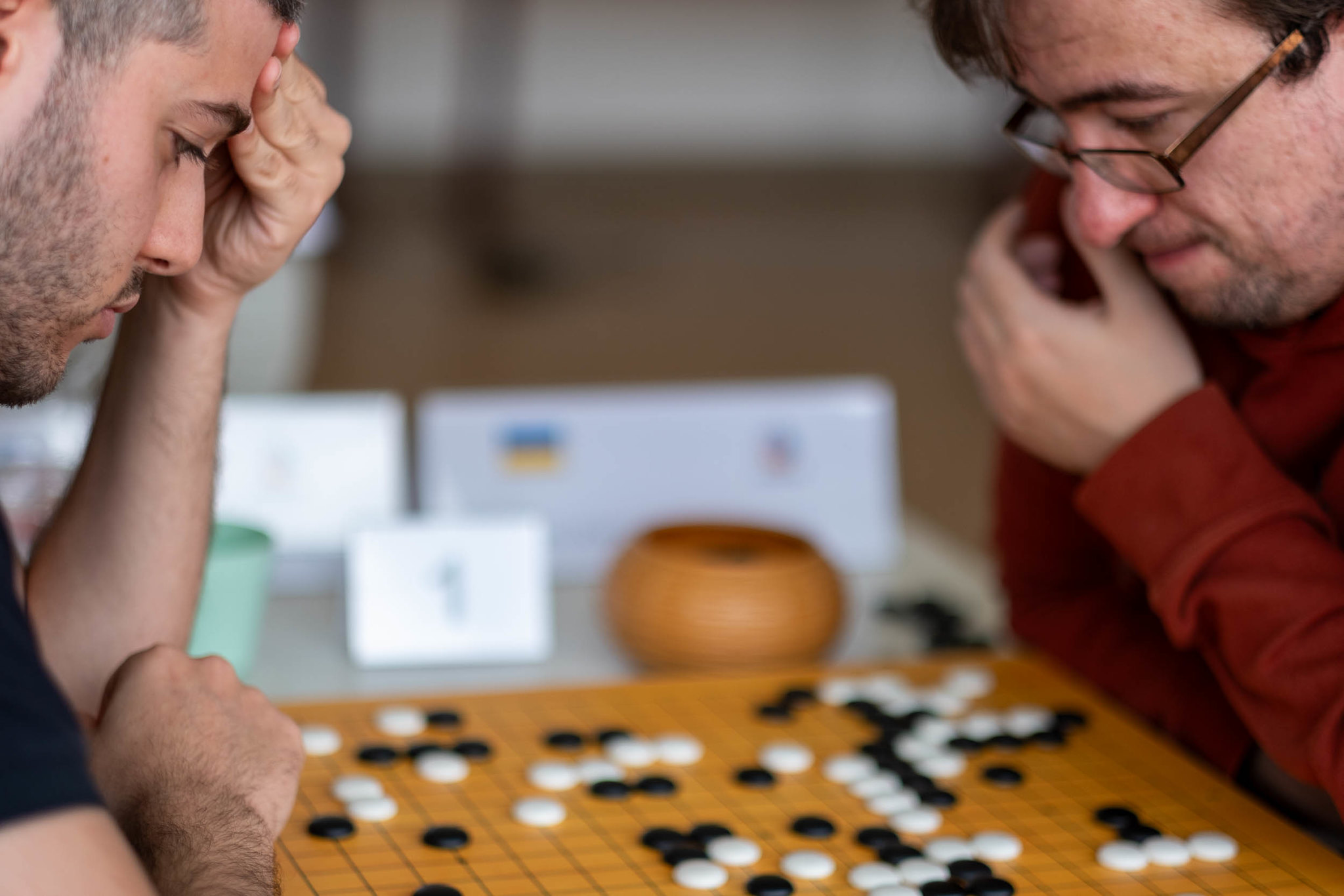
MP: Could you tell me your thoughts on the final? You started the endgame with a slight lead, how did you close out the game under such pressure?
AK: There was a very tricky moment at one point, I had a choice between a double sente and a reverse sente move. I knew that the double sente move was bigger, but I was confident in my lead and I thought that Ali might try to do something. I was confident that I could win even if I didn’t play the most optimal endgame. I chose the smaller move to make the game more simple.
MP: There was a similar moment in the middlegame [at move 97] where the commentators felt you should have played more sharply and not let White connect too easily.
AK: At that point, yes, I didn’t see a clear way to kill that group. I thought I was ahead and I was happy with my position. I also thought that if I could be the one to enter the endgame first, I could win the game easily. I didn’t feel any pressure.
MP: Especially in the age of AI, where people often feel pressure to find the sharpest variations and crazy tesuji, it was enjoyable to watch a game where that wasn’t the focus.
AK: Well, in this tournament, for example, Ashe [Vázquez 7d] played two 5-4 points every time as Black. If you ask AI, you lose, I don’t know, 0.7 points with each one. But we all make mistakes, we don’t play as accurately as Chinese pros, for example. For us, one or two points, that can be made up for in endgame. One blunder can cost you much more than the extra half-point you gain in a fighting variation. I also didn’t prepare any openings. I know some shapes, but I didn’t prepare any special fuseki. I just played the game and told myself to play the next move and not think about anything else.
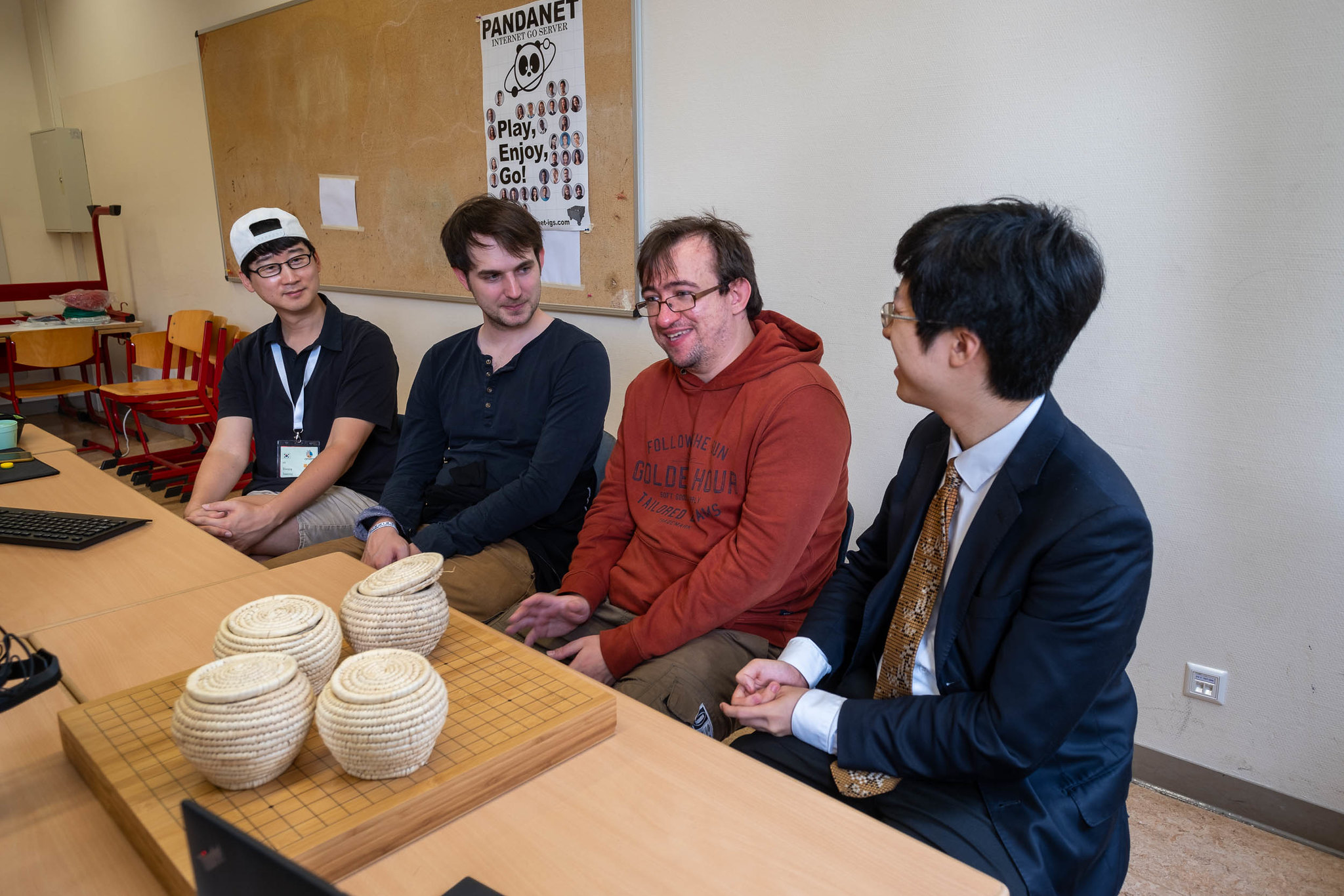
MP: We had two professionals and two amateurs in the semi-finals. What do you think about the strength of amateurs nowadays?
AK: The level of everyone has of course increased. For example, I am way stronger now than I was two or three years ago. But my rating is about the same. Three years ago I could easily beat 6-dans, no problem. Now, 6-dans already know a lot. 7-dans know even more, against them I have to really try hard to win. This year, three of the nine professionals didn’t play [Ilya Shikshin 4p, Pavol Lisý 2p and Mateusz Surma 3p]. All of them have a higher rating than me. If Pavol and Mateusz consistently played in all the tournaments, it would be very difficult for amateurs to go to the final.
MP: Which win are you more pleased with, the European Championship or the Team Championship?
AK: The European, I’ve won the Team Championship a few times before. First of all, I’m the first Ukrainian to win both titles – that’s something unique. It’s also about expectation. In the Team Champs, Ukraine is always near the top of the league stage and often the favourites. In this Championship, I don’t think anyone thought I was the favourite. It’s more of a surprise – it feels like something more crazy, more magnificent to win the Championship. I wanted to finish the Team Championship without dropping a single game, but I lost one [in the finals]. I was unlucky there, but lucky in the EC so that’s fine.
MP: That’s a good goal for next year then, win all your games in the Team Championship, then win the EC!
AK: I don’t know, I make my goals step by step. My goal this year was to win all my games in the Team Championship and instead I won the EC. So I think we can skip that step! I think the next step is winning the Grand Slam. I have more confidence now for sure, and for me it’s all about whether I’m motivated or not. This last year I didn’t train so much because go is my job. I teach for four or five hours and then it’s very difficult to start to play. But now I have motivation, I’m the Champion and that comes with some pressure. Also, now I believe that everyone is beatable. So, now maybe I can beat everyone more consistently.
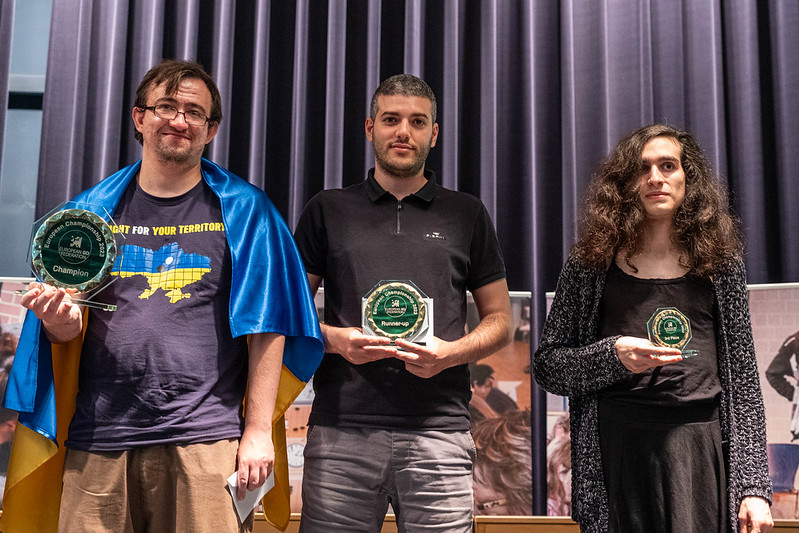
I remember we had a discussion with Artem before my quarter-final game with Stanisław Frejlak 1p. We were trying to think, what is his weak point? We were thinking and thinking and someone said, “there is no weak point.” Then Artem said, “But if you think like that, look at Andrii. He also doesn’t have a weak point.” In the end, everyone is pretty good at all stages of the game. In these long games, small things matter. Luck is a big factor too: sometimes your opponent has a bad day, that helps. That means that tomorrow, in another tournament, you can also have a good day. All you can do is make the chances bigger. And if you’re way stronger than average, maybe you have fewer bad days!
MP: Congratulations once again, Andrii, and thank you very much for your answers.

